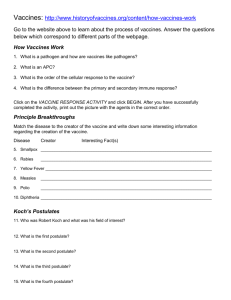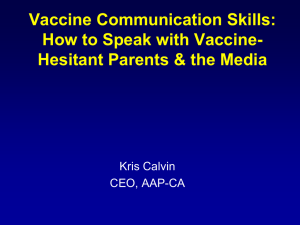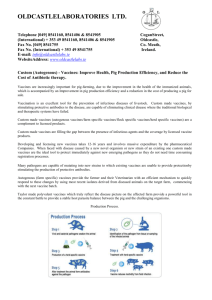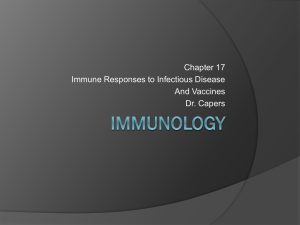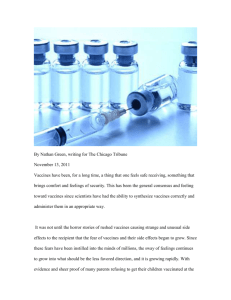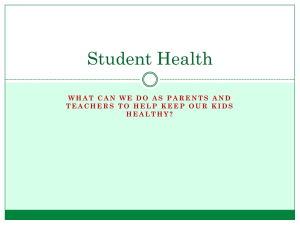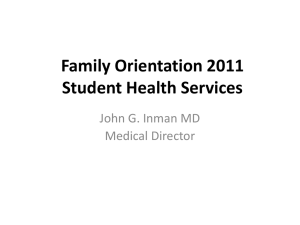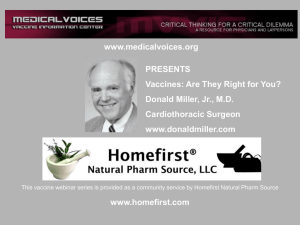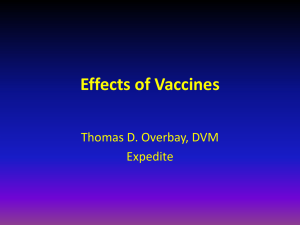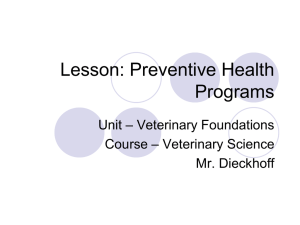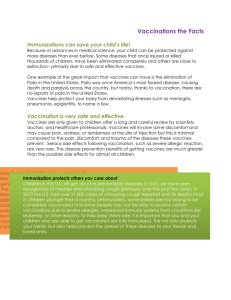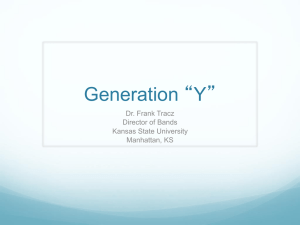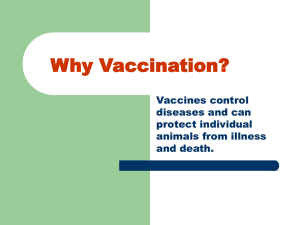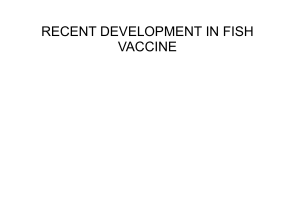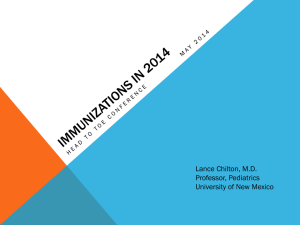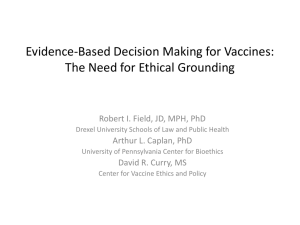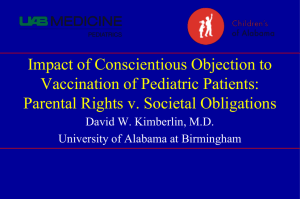Who*s afraid of a Little Vaccine?
advertisement
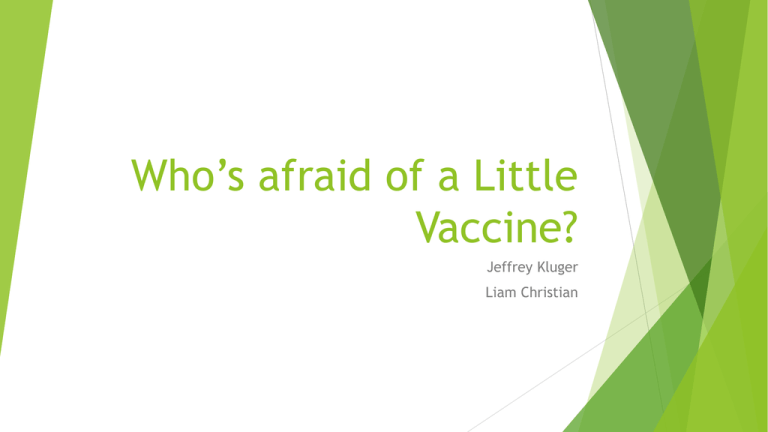
Who’s afraid of a Little Vaccine? Jeffrey Kluger Liam Christian Summary Article talks about the anti-vaccine movement that many parents are a part of Hard learned lessons that vaccines are not only safe but critical to the health and safety of children is being unlearned Mostly in blue states i.e. MA, CA, IL, etc. Most people who are anti-vax are primarily well educated and comparatively affluent people who consider themselves well informed continued Ex. Is Julie Snoeberger Former sales and marketing professional Her baby boy received his first round of vaccines at a young age, but after 12 months, he developed chronic ear infections “He went from a happy, verbal child to one who was violent, antisocial and had “lost all his words” Hasn’t received vaccines since then, and she credits her son as being a “typical teenager” due to the absence of the vaccines How avoiders of vaccines are persuaded Dangers of vaccine avoidance; they don’t see the numerical odds of contracting a disease Mumps for example can cause deafness, so once people see these types of complications, vaccine rates go way up Schools require unvaccinated children to stay home when they are sick, and also aren’t allowed to participate in school activities such as school dances or games. Once parents see this, they are persuaded to get their kids vaccinated Doctors say the parent on parent persuasion is the best way to bring vaccine opponents around; parents who don’t vaccinate their kids are resented by parents of kids who are and see them as undermining their efforts of protecting their own children. Independent variable The causes of these parents refusing to let their children receive vaccinations is that these “well informed” parents are motivated by nothing more than simply what they think is right despite the science proving they are wrong, as determined by epidemiologists and school administrators Good families who are trying to make the best call they think they can for their kids-this “best call” could be their worst one Parents believe the vaccines are overused and teeming with toxins. Also think they cause autism, bipolar disorder, ADHD, and allergies One theory claims that the wealthier you are and the higher your education level, the more you lose sight of the randomness of misfortune and come to believe you can control variables and eliminate risk Dependent variable Dependent variable is parents and other adults part of the anti-vax movement are opting out and refusing to let their children receive vaccinations, due to the fact that many of them believe the vaccines can actually cause illnesses Parents are refusing to let their kids get vaccinated or are choosing to opt out of vaccinations due to religious or philosophical reasons, or because of a medical condition in the child Social science field the article falls under Economics The study of incentives Economists would be interested in this article because they would want to look at the parents and other adults part of the movement’s incentives to either be strictly against vaccinations altogether or to refuse to let their kids get vaccinated Why is it important to me, scholars, society, and to a profession or career area Me-I personally no longer get shots due to my mom telling the doctors not to give me shots And somewhat afraid of what could happen to my health because of not getting vaccines Scholars-would want to learn about the truths and importance of vaccines and learn how susceptible people are to getting sick who are not vaccinated Society- many kids are not vaccinated-can lead parents of other kids to feel nervous about their kids being around others who do not have vaccines Profession or career area-can lead doctors and others in the medical field to research affects of kids without vaccines and what can happen to them Summary/major lesson Not enough scientific proof to determine that vaccines are dangerous and can cause sicknesses in children, and kids are at more of a risk if they don’t have these vaccines Vaccines give us something we never thought of- the once unheard of power to choose health, and doctors are trying to help people make the right choice.
